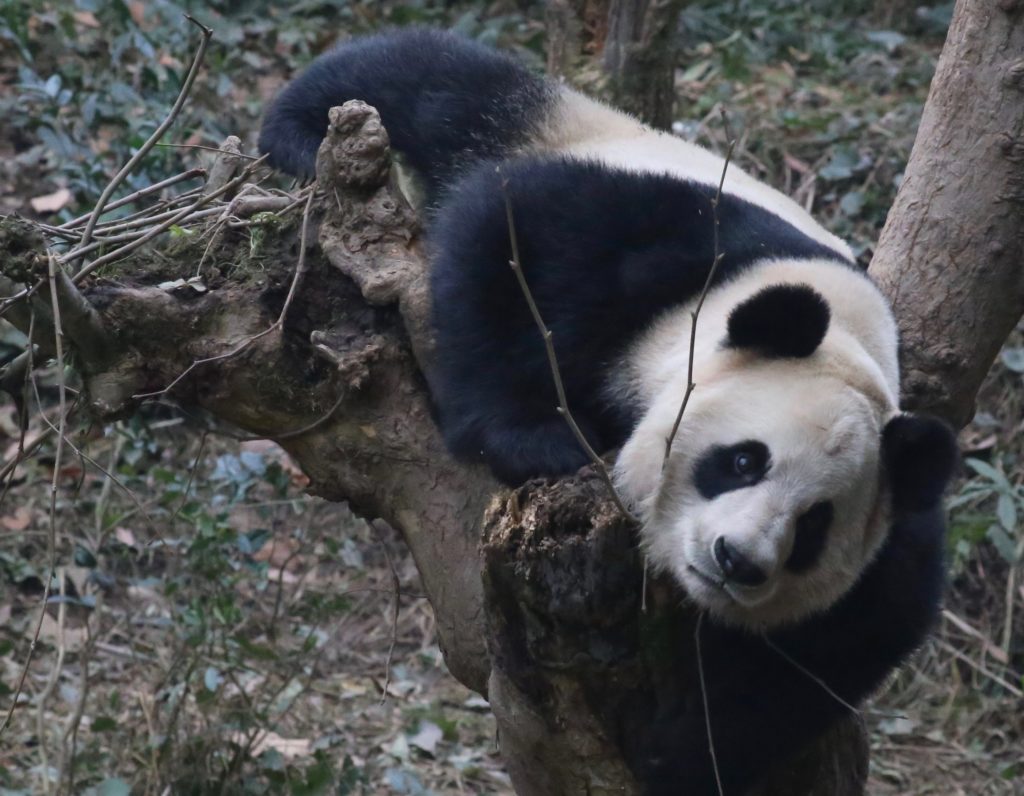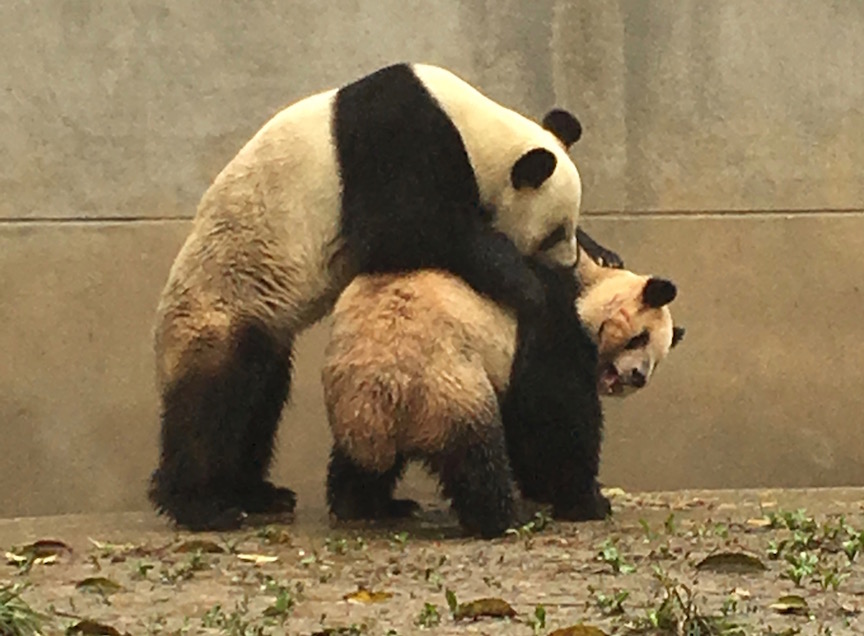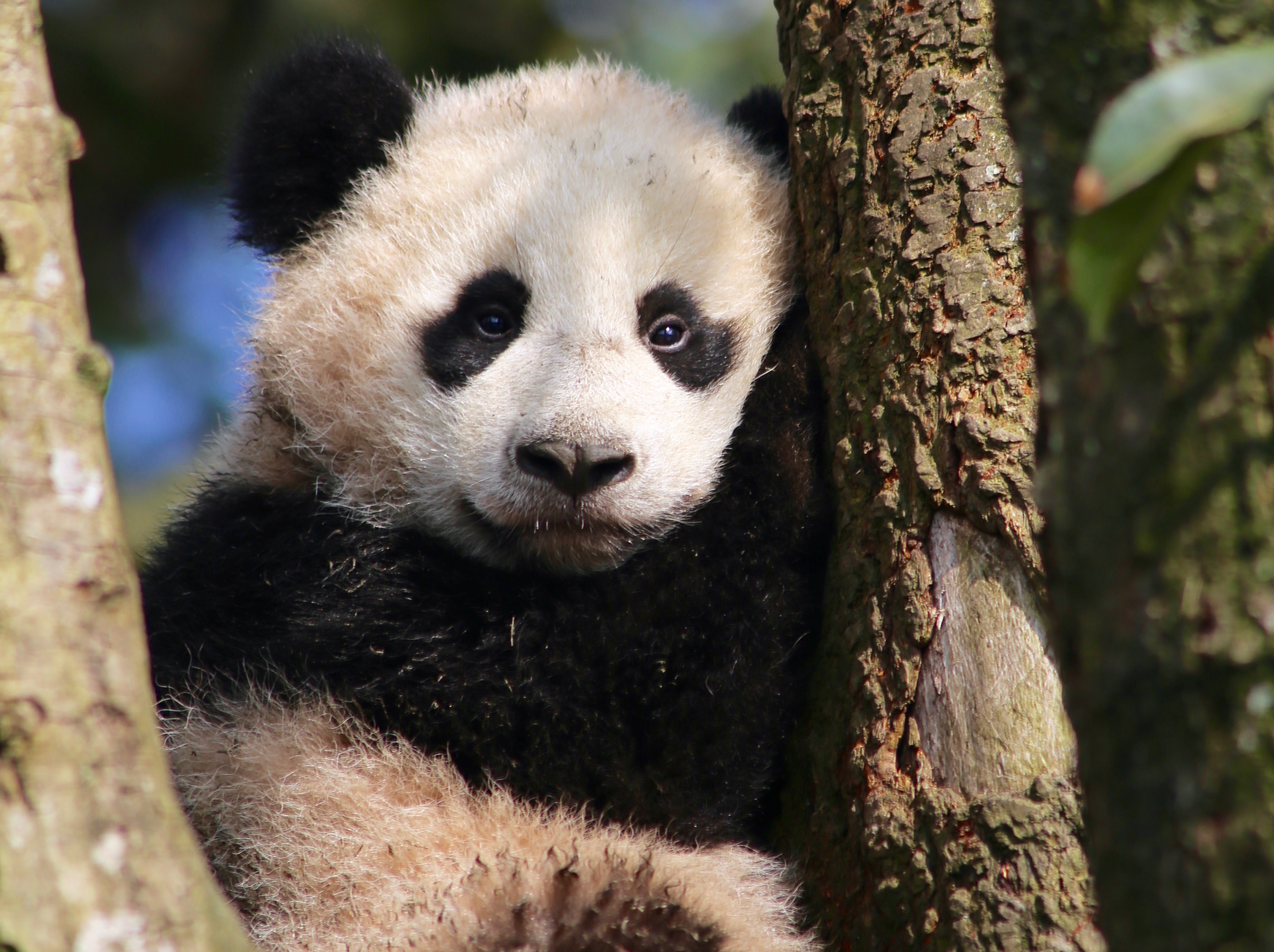Giant panda no longer endangered
The giant panda was down-listed from ‘Endangered’ to ‘Vulnerable’ on the International Union for Conservation of Nature (IUCN) list. This change in official status demonstrates how a multi-institutional, integrated conservation effort can help save critically endangered species (and plants!). Officially the giant panda population cannot be listed as ‘Endangered’ if the population is found to be increasing and with the 17% rise in the population in the decade up to 2014 we can safely say the panda population is on the rise! A ‘Vulnerable’ listing does not imply the giant panda is safe, in fact, a nationwide census found only 1,864 giant pandas in the wild in China so there is still work to be done. PDXWildlife has helped increase the captive population that will be used to bolster wild populations.

Trained and mentored 14 future conservation biologists
We hit a new landmark in the number of scientists we have been able to train and educate. PDXWildlife views training the new wave of conservation biologists as one of our primary duties since the future of our planet and wildlife is in their hands. This year we were able to train 14 promising undergraduate students in behavioral conservation research. It was the first year we started our “Christmas” internship opening up 3 more slots for interns. With their help we investigated how male-male competition effects reproductive success, how personality alters breeding success and maternal care style, and how stereotypes effect reproductive success.

Three new research projects started
This year marked the start of the first full year of male-male competition data with an end-date slated for 2017 or 2018 depending on sample sizes. The male-male competition study aims to increase the reproductive success of under-represented male giant pandas in the captive breeding population (we all know Pan Pan and Lu Lu have many children/grandchildren!). It will also be the first in-depth look EVER of how dominance is established during male-male competition. We also started collecting data on mercury concentrations in giant pandas throughout China ranging from the wild to one of the most urban cities in the country, Beijing. Our mercury project will be important to determining how well giant pandas (and other wildlife as a proxy) are coping with the rising pollution levels in our world. Our reintroduction work was officially started when we ordered a camera trap to perform our pilot study which will kick off at the very beginning of 2017 when Meghan visits China (January 7th – 14th) and trains Zachary David to be our first ever reintroduction intern! This study marks a big milestone for PDXWildlife as we’ll be one of the first international institutes (in collaboration with the San Diego Zoo) working on the reintroduction bears. We hope that the combined conservation experience at both institutes brings helpful insights to the current program while the CCRCGP, San Diego Zoo, and PDXWildlife work to solve some of the larger stepping stones for the giant panda reintroduction program.

Su Shan
New freeze dryer
While this may not seem like a big “win” to our readers the ability to freeze dry fecal samples, in small, stable quantities greatly expands our research capabilities. This new piece of equipment (obtained through generous donations from all of you!) allows us to condense a large, hand-sized giant panda fecal sample down to a 10ml tube which can be transported without ice. Freeze drying also makes the sample more stable when there are power outages in China. With this new tool we can start to analyze reproductive and stress hormones in conjunction with our other research questions. This ability gives us a better understanding of how hormones may be affecting behavior and helps us understand the “bigger picture”.

Publications and manager education
PDXWildlife had a few major publications last year – topping the list was Meghan’s Nature Communication paper, “Free mate choice enhances conservation breeding in the endangered giant panda”, which was covered by National Geographic, Huffington Post, Reuters, and IFL (to name a few) and is in the 99th percentile of media coverage of tracked articles of a similar age across all journals. We use our research as an adaptive management tool which is just a fancy way of saying that we ask a directed research question aimed at solving a “problem” seen by conservation managers, we find a solution to that problem once our research is complete, and we give feedback to managers to “solve” the problem (often collecting research on whether the problem was indeed solved). We also disseminate our results to conservation managers world-wide in hopes that research on pandas can help solve similar problems faced by other endangered species. For example, Meghan is currently advising work on the Black-Footed Ferret and the Island Iguana captive breeding programs.

Looking forward to 2017
As a small non-profit, PDXWildlife believes that good things can come in small packages and that our work is having a direct impact on the conservation issues we research. You can help make a difference by supporting our work


PDX rocks!! I am so thankful for the research and dedication that you and the interns show to the giant panda program! You are my heros and I only wish I was young enough to help with the research! I am so jealous of your interns and so proud of the work they do, and how they appreciate the time they spend in that area of China. They make the most of it, which is wonderful to see! Thank you for your continuing interest and research into the Giant Pandas – I love all of your research areas and look forward to each update. Best of luck and good wishes in 2017 – will be watching for more of your interesting and insightful updates! xoxo Jeanette